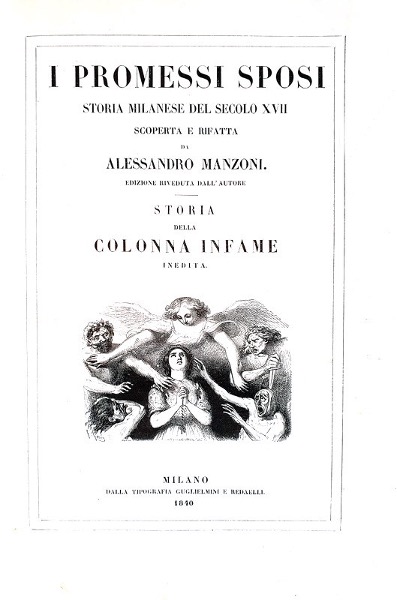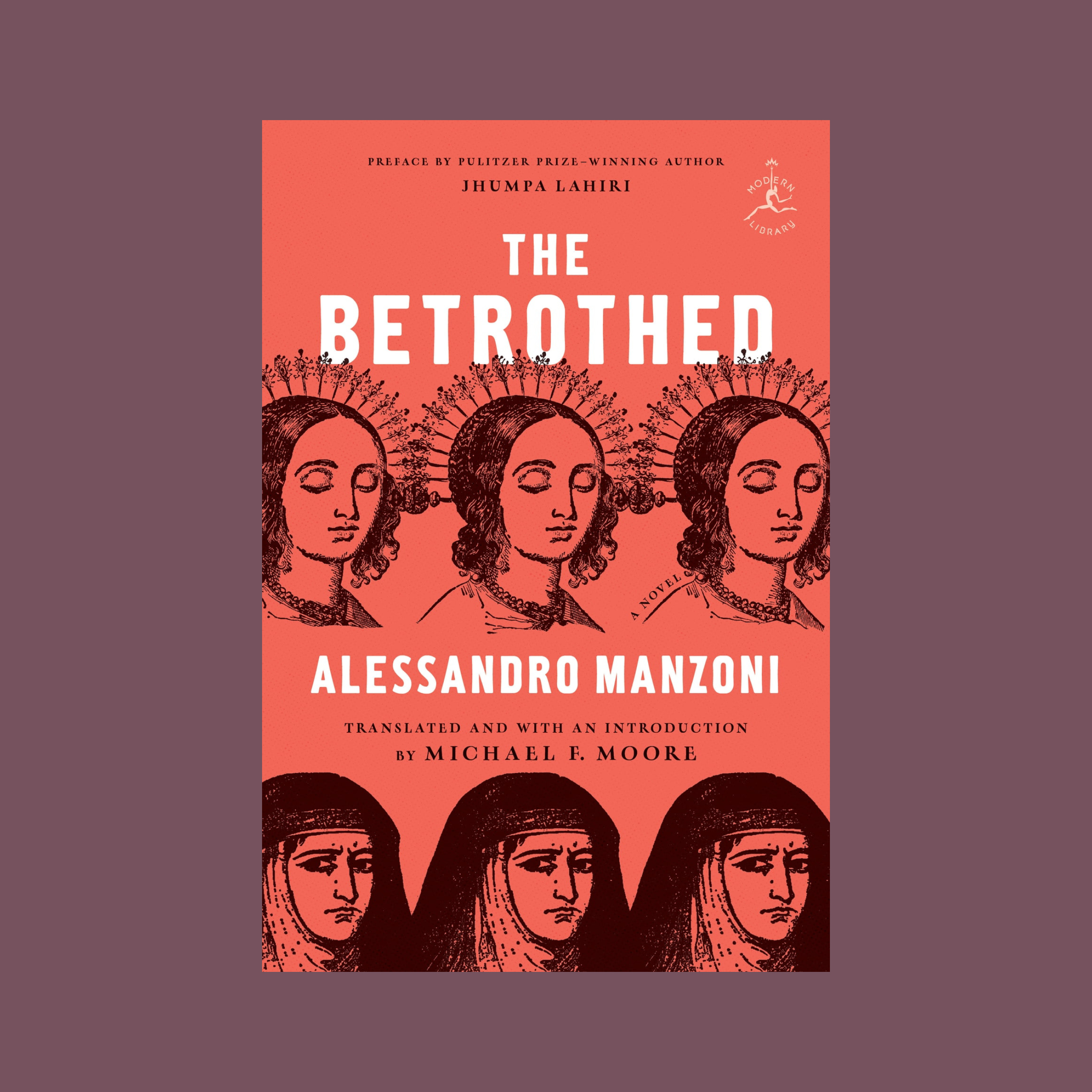APS TOGETHER
Day 1
The Betrothed by Alessandro ManzoniIntroduction & Chapter 1 (through pg. 13: "were still around.")
February 21, 2023 by Michael F. Moore

The original title page. Pictures! (More on these later.) The heroine caught between good and evil, death and disease. And beneath the author’s name, “Edizione Riveduta dall’Autore” (Edition Revised by the Author). Those revisions, of the original 1827 edition, were to emend occasional regionalisms and archaic usage and make the language more purely Tuscan, as I mention in the Preview.
Page 1. The old manuscript in the attic device? Manzoni begins with a tease, an example of the ornate and overblown seventeenth-century Italian that he set out to reform. In the pages that follow he will quote from actual documents, but this one is his own invention, a pastiche. A funny way to open, a false start, almost daring the reader to put the book down immediately. Murder to translate! It outlines the political order, summarizes the plot and the themes, and suggests the POV of the author (and implicitly, the reader): the novel is a “teatrino,” a little theater, for a play that we will watch together.
Page 4. Manzoni erupts: I can almost hear him saying “Basta!” He’ll be interceding here and there. Although he used the authorial “noi” (we), I preferred to use the less old-fashioned “I” when he steps in, the better to hear his voice stepping out of the narrative. When his “noi” is in complicity with the readers, I used “we.” Here I was tempted to write, “By the time I have slogged through,” but it sounded too contemporary, and too much like me, so in the end I opted for the more Latinate “endured,” after several false starts of my own.
Page 5. “Because it was as a story, although the reader might disagree, that I found [it] beautiful, I repeat, quite beautiful.” Oops! An “it” missing in action. When people ask why I dedicated so many years to translating this novel, this is what I’d like to answer (and sometimes do).
Page 7. Ah! The gorgeous opening paragraph that every Italian knows by heart. Read it out loud. Or check out how it sounds in Italian. When I doubted whether I should take on this project, a friend recommended that I simply try out the beginning, and if it felt right, to take it on. Manzoni is at his most lyrical when he is most visual, especially in descriptions of the natural landscape. Here, in almost cinematic fashion, he surveys the larger world before zeroing in on the small fishing village of Pescarenico, and a solitary priest walking along a path.
Page 10–11. The “gride,” literally, the “shouts”: now we’re reading genuine 16th and 17th century documents. Manzoni quotes from the decrees ruthlessly, to illustrate their pompous tone and useless effect. Diabolical to translate, I unraveled them with the help of an Italian judge, and them tangled them back up.
